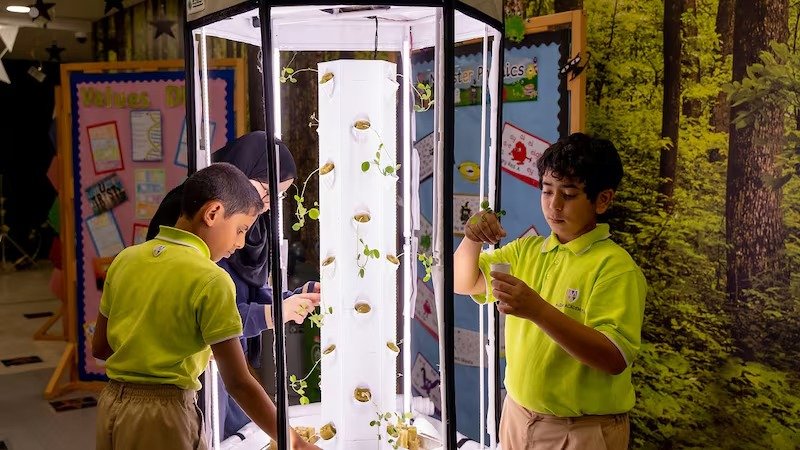UAE Schools Break from Classrooms and Move to Project-Based Learning to Teach Real-Life Skills

Source:https://www.thenationalnews.com/
Some schools in the UAE are reforming education by moving away from traditional classroom models and subject separations. Recognizing these methods as outdated, they aim to better prepare students for the future. Instead of memorization, schools are focusing on project-based learning, providing industry experience through internships, and adopting an interdisciplinary approach that combines subjects for a more holistic educational experience.
The trend in the UAE reflects a global shift towards reforming education. For instance, in Greece, educators are focusing more on project-based learning, vocational training, and integrating artificial intelligence into the curriculum. Finland, despite having one of the best educational systems, is addressing issues of excessive digitalization in classrooms and considering reducing mobile phone use.
At Gems Legacy School in Dubai, the curriculum emphasizes interdisciplinary learning, integrating sustainability and climate action into all subjects. Principal Asha Alexander explained that the aim is to connect classroom lessons with real-world issues, moving beyond traditional subject boundaries to solve contemporary problems.
Students tackling food-waste issues apply data management and analytical skills to create charts and presentations, integrating language skills in the process. This interdisciplinary approach is seen as more effective than traditional subject-based learning, which can be restrictive. Vikas Pota, founder of T4 Education, emphasized that combining subjects fosters creativity and innovative thinking in students. However, a significant challenge remains: standardized exams still require students to be assessed by individual subjects, limiting schools’ ability to fully modernize their educational practices, according to Ms. Alexander.
Head teachers in the UAE are innovating by moving students out of traditional classrooms into more dynamic learning environments. For example, Mamoura British Academy in Abu Dhabi has created spaces like a fairy-tale kingdom and a forest-themed indoor campsite to enhance communication skills and encourage relaxation and brainstorming. Principal Sarah Weaver emphasized the importance of project-based learning and maximizing time spent outside traditional classrooms.
Additionally, some schools, like Citizens School, are adopting a “flipped classroom” model, where students prepare for lessons in advance and come in with questions, fostering more interactive discussions. Manos Antoninis, director of the Global Education Monitoring Report at UNESCO, noted that this approach makes classroom time more efficient by promoting dialogue instead of simply recounting lessons.
A recent report from HP Futures emphasizes the need for a significant overhaul of education systems, advocating for a shift away from traditional learning methods towards modern practices. Mayank Dhingra, a senior education leader at HP, highlighted the importance of redesigning curricula to prepare students for emerging careers, noting that current systems are failing to equip students at the necessary pace. Vikas Pota remarked on the challenges of education reform, stating that it typically takes around 15 years to evaluate its effectiveness and requires substantial effort and investment.
Image Source:https://www.thenationalnews.com/




